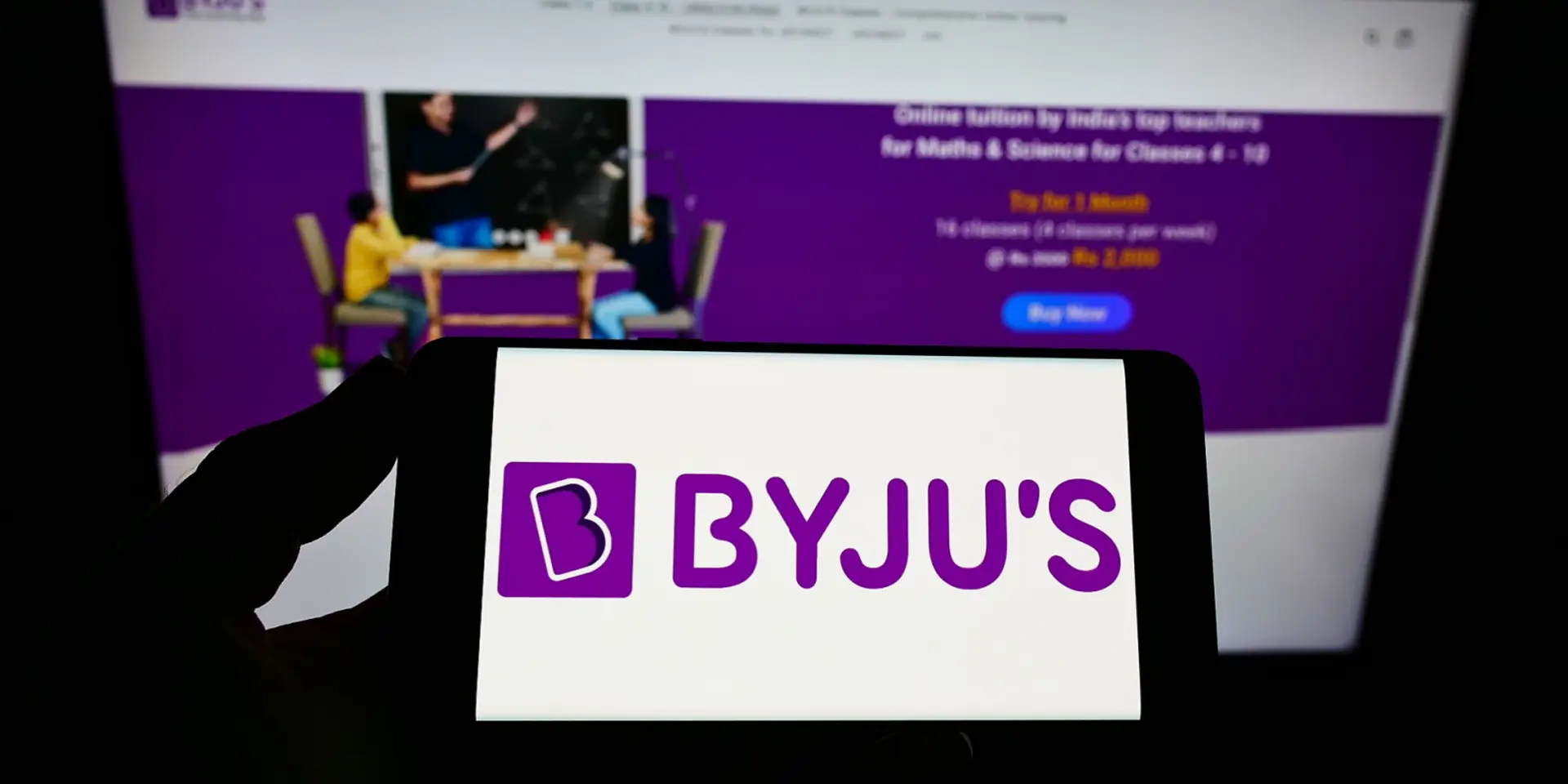BYJU’S reports much-delayed FY22 numbers; losses widen to Rs 8,245 Cr
BYJU'S reported a consolidated loss of Rs 8,245 crore in FY22, up 80.6% from Rs 4,564 crore recorded in the earlier fiscal period. Operating revenue rose 120% to Rs 5,014.6 crore in FY22, compared with Rs 2,280.3 crore in FY21.
In a long-anticipated revelation, edtech firm on Tuesday submitted its financial results for the fiscal year (FY) 2021-22 to the Ministry of Corporate Affairs .
The Bengaluru-based firm reported a consolidated loss of Rs 8,245 crore in FY22, up 80.6% from Rs 4,564 crore recorded in the earlier fiscal.
Meanwhile, its operating revenue rose 120%, touching Rs 5,014.6 crore in FY22 compared with Rs 2,280.3 crore in FY21, as per its recent consolidated financial statements.
The edtech company’s total income, including interest income from current investments reached Rs 5,298.4 crore in the financial year that ended March 2022—up from Rs 2,428.4 crore in the previous fiscal year.
The Byju Raveendran-led firm’s total expenses surged 94.5% to Rs 13,668.5 crore in FY22, compared to Rs 7,027.5 crore in FY21.
The largest contributor to the firm’s expenses was the category of expenditure on production, and transportation, accounting for 30.36%. These expenses increased 84.1% to Rs 4,143.9 crore in FY22 from Rs 2,250.9 crore in FY21.
The edtech company allocated Rs 3,552.2 crore to employee benefits in FY22—a 82.8% rise from the Rs 1,943.3 crore spent in the preceding financial year. It remained one of the largest expense categories.
The company’s EBITDA loss was Rs 6,679.1 crore in FY22, up from a loss of Rs 4,142.9 crore in the year ago-period. EBITDA, or earnings before interest, taxes, depreciation and amortisation, is a measure of core operational efficiency.
In November, BYJU'S selectively shared some of its FY22 core business numbers. However, the edtech company had officially not disclosed the net loss from its core business, as well as the consolidated revenue and profit/loss figures for FY22.
The FY22 numbers come amid BYJU'S escalating challenges—highlighted by BlackRock’s recent 95% markdown of its stake in the edtech firm.
Last November, Prosus marked down the valuation BYJU’S to less than $3 billion. In November 2022, Prosus first slashed the fair value of the company to $5.97 billion.
In June, auditing firm Deloitte Haskins & Sells stepped down as BYJU’S and Aakash’s statutory auditor, attributing the resignation to the delay in the company filing its FY22 financial statements. Subsequently, BYJU’S appointed BDO (MSKA & Associates) as its statutory auditor for the next five years, starting from FY22.
As per an independent auditor's report, in BYJU’S FY22 financial statement, continuing net losses from operations and accumulated losses, in addition to the uncertainty related to the outcome of the litigation and its financial impact thereon, in respect of the $1.2-billion term loan B, indicate that material uncertainty exists, which may cast significant doubt on the group’s ability to continue as a going concern.
The auditor’s report added, “The management has undertaken various measures to improve its operating financial condition, is also in the process of securing necessary funding arrangements and exploring sale of assets as needed, and hence is confident regarding the future viability of the group.
“Further, basis a legal opinion, the management is of the view that it is unlikely that the TLB loan will be required to be paid in the foreseeable future. Accordingly, these financial statements for the year ended March 31, 2022 have been prepared on a going concern basis."
BYJU’S, which rapidly grew through strategic acquisitions, has encountered significant challenges post the pandemic-led edtech boom. These challenges include litigation concerning the $1.2-billion TLB, issues with the Enforcement Directorate, a liquidity crunch, and uncertainties regarding its core business and acquisitions.
To ease its financial challenges, BYJU’S looking to secure over $100 million from existing investors in an upcoming share issuance next month, valuing the firm at less than $2 billion—a 90% cut from its valuation of $22 billion in the late 2022 round, Bloomberg News reported.
Founder Raveendran is expected to partake in the share sale to maintain his stake, with the proceeds intended for vendor payments and business stability, the report added.
BYJU’S acquisitions
“While we are happy that our total income has grown 2.2X, we are also aware of our underperforming businesses like WhiteHat Jr and OSMO which contribute to 45% of the losses,” Nitin Golani, Chief Financial Officer of BYJU’S, said in a statement.
“We have taken various measures to improve our operating financial conditions. These businesses were scaled down significantly to cut losses in the subsequent years while other businesses continue to see growth,” he added.
BYJU’S acquired US-based startup OSMO for $120 million in 2019. Its total income decreased to Rs 553 crore in FY22 from Rs 600 crore in the previous year.
In 2020, BYJU’S purchased WhiteHat Jr for $300 million. It has emerged as one of its most financially draining subsidiaries. WhiteHat Jr’s total income for FY22 was Rs 295.11 crore, a decrease from Rs 326.67 crore in the preceding fiscal year.
While WhiteHat Jr and OSMO have contributed to BYJU’S losses, its other two acquisitions—Aakash and Great Learning grew 40% and 77% respectively immediately after acquisition, the company said.
In 2021, BYJU’S acquired Aakash for a mammoth $1 billion, closing the world’s largest edtech acquisition by a venture capital-backed company. From the date of acquisition, Aakash has contributed Rs. 1,277.64 crore of total revenue and a profit of Rs. 126.72 crore to the loss before tax from operations of the Group.
BYJU’S purchased skilling startup Great Learning for $600 million in 2021. From the date of acquisition, Great Learning India has contributed Rs. 219.50 crore of total revenue and a loss of Rs. 193.74 crore to the loss before tax from operations of the Group.
BYJU’S has spent over $3.5 billion on 19 acquisitions, as per Tracxn. It has invested in multiple sectors such as K-12 (kindergarten to 12th grade), continued learning, test preparation tech, and more.
(The copy was updated with more information.)








